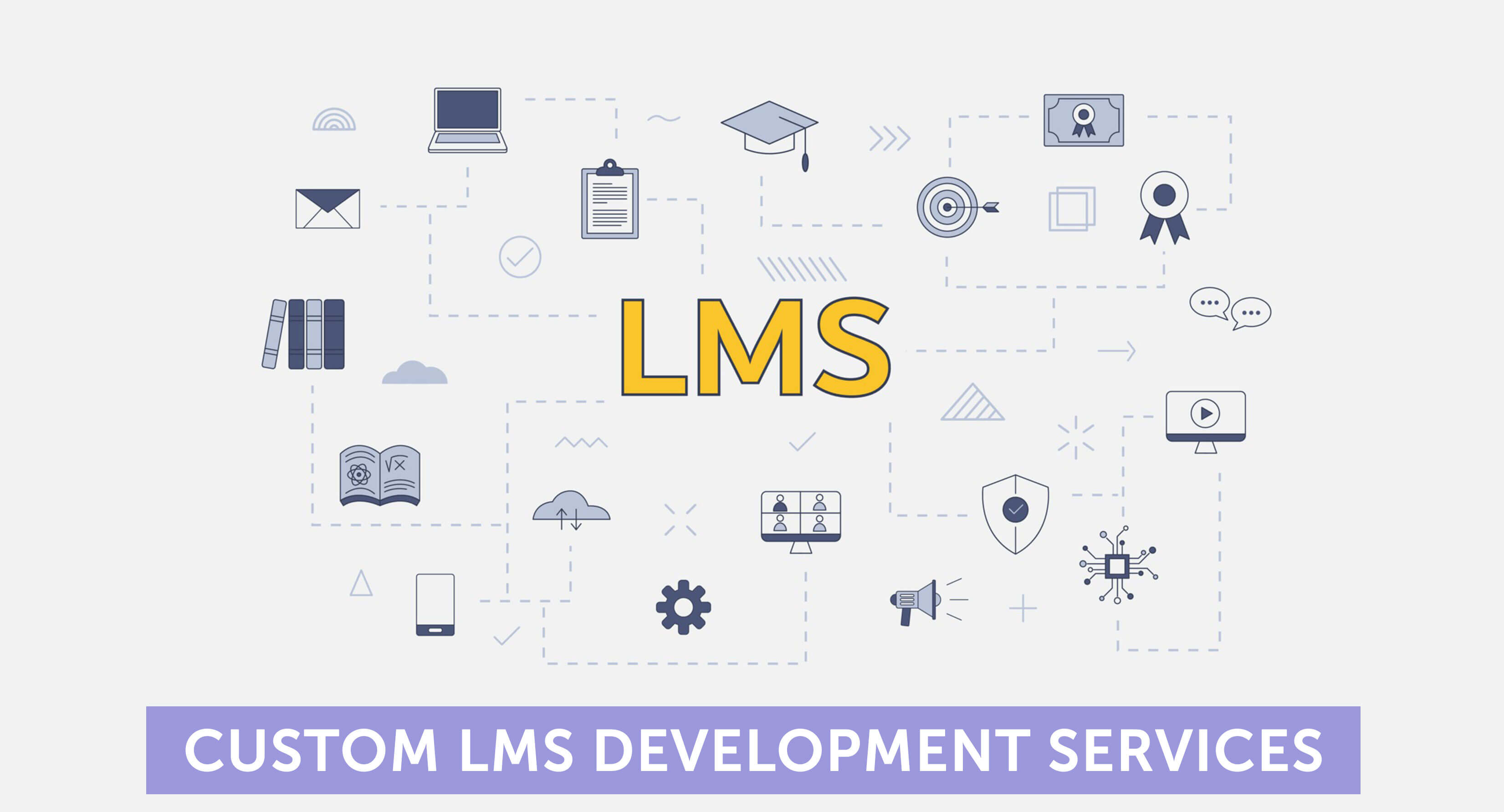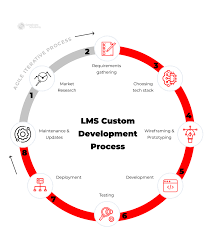
The Advantages of Mobile LMS for Organizations: How it Outperforms Web LMS
Are you thinking about investing in an LMS app development service?
Organizations today are relying more and more on digital solutions to match their growing
learning and development needs. They must decide between the advantages of a web-based
Learning Management System (LMS) or a mobile LMS designed for users who often access
information on the go.
The use of mobile technology has revolutionized virtually every industry, including education.
Mobile Learning Management Systems (LMS) allow organizations to deliver corporate training
content to employees directly, wherever they are located. It has become increasingly popular
because of its superior accessibility and convenience for learners compared with web-based
LMS systems.
In this article we will discuss how mobile LMS outperforms traditional web-based LMS in terms
of convenience, cost effectiveness, scalability and usability, as well as how it enables efficient
collaboration between employees and other stakeholders within an organization. If you desire
to know more, you can always connect with the experts providing custom LMS development
service and get all the support you need.
Advantages of Mobile LMS compared to Web LMS
Below are the advantages that you get with custom mobile app development service. Check it
out:
- Compatible with Smartphones: Mobile Learning Management Systems (LMSs) are often
designed to be compatible with a variety of smartphones, allowing students to access courses
anywhere and anytime.
- More Affordable: Mobile LMS platforms tend to be less expensive than cloud-based web
LMSs, making them an attractive option for businesses and educational institutions on a tight
Budget.
- Easy Integration With Wearable Devices: Mobile LMS platforms allow trainers and
educators to track the progress of their learners or students using wearables and fitness
trackers, making it easier for them to monitor their progress in real-time.
- Personalized Training Solutions: Mobile LMS facilitates personalized learning experiences
through the use of artificial intelligence, machine learning, and gamification features which can
be adapted according to individual learners’ needs and preferences.
- Better Engagement With Content: Through the use of videos, slideshows, quizzes etc.,
mobile LMS platforms can help engage users more deeply with content they’re presented with
while learning at the same time.
- Increased Interactivity: Interactive elements like discussion boards, polls and surveys can
be embedded into a mobile LMS platform easily without needing any special coding skills which
enhances overall user experience immensely
- Offline Accessibility: One of the biggest advantages of using mobile LMS is that learners can
access content even when they don’t have an internet connection due to its’ offline accessibility
Capabilities.
- Greater Ease Of Use & Customization: When compared to traditional web-based systems,
mobile learning management systems offer greater ease-of-use with easy setup options &
greater customization potential as well as better portability which is crucial in today's fast-
paced world where people need access to information quickly while still on the go.
Cost benefits of Mobile LMS over Web LMS
The cost benefits of using a Mobile LMS (Learning Management System) over a Web-based LMS
include:
- Reduced running costs – an advantage of Mobile LMS is that they are cheaper to maintain
and operate than Web-based solutions, as no additional hardware or software is required. This
makes them suitable for small businesses or institutions with limited resources.
- Increased scalability – Mobile LMSs are more easily scaled up than web-based solutions
because all you need to do is add more users and software packages, allowing for greater
growth potential for your business or organization.
- Improved reach – As users can access the content from any device, this makes it easier to
reach learners in remote areas who might not have access to traditional web-based learning
Platforms.
- Increased engagement – as mobile devices can support interactive media such as audio and
video, it’s easier to engage learners with rich multimedia content which could improve the
overall effectiveness of their learning experience – something which would be difficult with
web-based systems where the user has limited interaction capabilities on different devices.
- Cost savings on development – creating courses and updates on a Mobile LMS takes less
time and money than using a web-based system due to the platform’s efficient setup times and
simplified development process.
- Flexibility – since mobile platforms offer users flexibility in terms of when they learn, they
can fit into even the busiest schedules while still giving learners access to quality educational
content whenever needed
Tips for getting the most out of your Mobile LMS
Take a look how you can make the most out of mobile eLearning solutions:
- Focus on making your mobile learning content concise and engaging: Content that is
concise and to the point will be more easily consumed by learners when delivered via a mobile
device. Make sure your content is focused on a specific learning objective and breaks down
complex concepts into short, digestible morsels of information.
- Utilize "microlearning" methodology: Microlearning allows you to take discrete chunks of
content and deliver it in shorter, more manageable bites. This type of approach works well with
mobile devices where learners may not have a lot of time for training or are looking for "just-in-
time" remediation or instruction.
- Ensure your LMS offers built-in support for tablets, smartphones, and other mobile
devices: Look for an LMS that has built-in support for different types of mobile devices so that
users can access courses via their preferred device without needing additional software
programs or downloads installed before they can get started.
- Simplify Navigation & Design Your LMS With Usability In Mind: Having clear menus and
interactive features makes it easy for users to navigate the platform quickly and intuitively, so
make sure your Mobile Learning Management System (LMS) includes features like this in order
to maximize user engagement as much as possible!
- Optimize images, videos, text & audio files for delivery on Mobile Devices: It's important
to optimize all file types being used within your course structure so that they can be delivered
properly on smaller screen sizes, thereby contributing to an ideal viewing experience all across
various platforms including phones or tablets.
- Allow Users To Learn In Any Environment: So long as learners have access to an internet
connection – finding one shouldn't be difficult these days – allow them the option to view
courses from anywhere at any given time; this helps increase user engagement in turn boosting
retention rates amongst new users who are just getting acquainted with the app or platform!
- Leverage Platform Features That Enhance User Experience & Enable Interactions: Try
leveraging various platform features – discussions forums, social media integration etc., – which
enable interactions between students/participants allowing them to connect with one another
outside of standard course offerings while providing peace mind in knowing he/she isn’t left
“hanging” out there alone!
- Utilize Gamification To Motivate Learners & Track Progress Easily: Encouraging learners
by rewarding them with points or badges based upon mastery level is a great way to keep
people engaged while displaying real-time scores which shows where everyone stands relative
positioning at any given moment (ease tracking progress)!
- Keep An Eye On Constant Changes Within The Platform Technology Itself: Be aware of
any changes within mobile technologies like AR/VR since these could greatly impact how
people transition over from traditional methods learning onto newer approaches such as those
found within online formats like virtual reality simulations aided by software libraries quickly
becoming commonplace amongst development today!
Wrapping It Up
The advantages of a mobile learning management system for organizations are numerous and
sometimes even greater than those of a web-based system. Compared to web LMS, mobile-first
technology offers an anytime, anywhere user experience that is compatible with any device, at
no additional cost. Mobile LMSs are highly customizable and feature rich, with the ability to
deliver interactive learning experiences through integrating audio, video, and content over
multiple platforms. Additionally, mobile LMSs can generate meaningful data reports on user
engagement in real time. As such, organizations can gain valuable insights into their employee's
learning activities and how they interact with course materials. In sum, a responsive mobile
LMS will provide organizations with increased flexibility and convenience while also enhancing
user engagement and experience.







